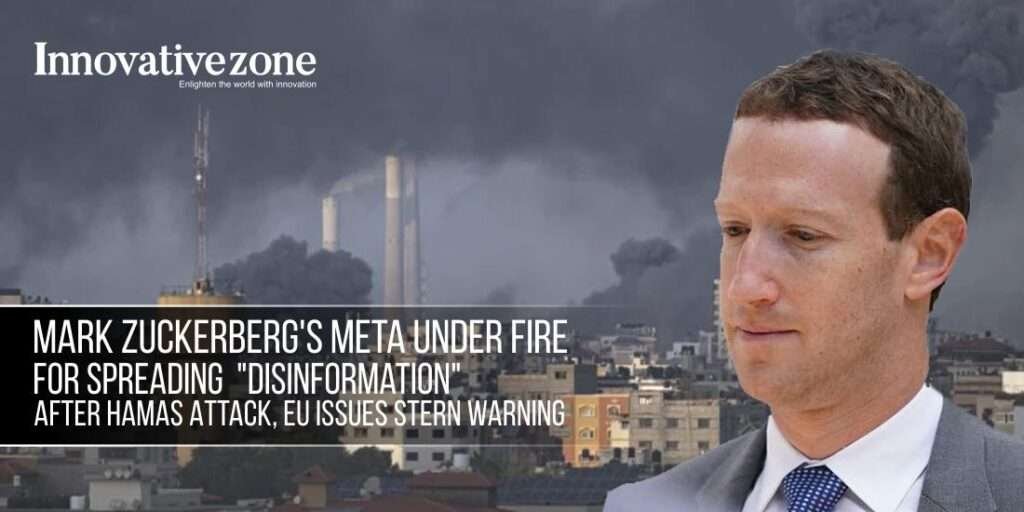Mark Zuckerberg’s Meta Under Fire for Spreading “Disinformation” After Hamas Attack, EU Issues Stern Warning
Written by Sanjay Kumar
News Highlights
- EU Warns Meta’s Mark Zuckerberg Over Disinformation After Hamas Attack.
- 24-Hour Deadline” Given to Meta for Compliance with EU Law.
- EU Digital Services Act Regulations Enforced for Content Moderation
In the wake of the recent Hamas attack on Israel, Mark Zuckerberg’s Meta is facing heat from the European Union for alleged dissemination of “disinformation” on its platforms. European Commissioner Thierry Breton sent a strongly-worded letter to the billionaire CEO, urging Meta to take immediate action to address the issue.
The EU’s warning, delivered on Wednesday (October 11), placed Meta on notice, setting a tight deadline for response. The European Union demanded that the tech giant comply with European law within “24 hours.” Meta, the parent company of social media giants like Facebook and Instagram, as well as Threads, is now in the hot seat.
Thierry Breton’s letter emphasized the obligations outlined in the EU Digital Services Act concerning content moderation. It stated, “Firstly, following the terrorist attacks carried out by Hamas against Israel, we are seeing a surge of illegal content and disinformation being disseminated in the E.U. via certain platforms.” Breton called on Zuckerberg to ensure strict compliance with the Digital Services Act’s rules on terms of service, timely response, diligence, and objective action when it comes to illegal content notices within the European Union.
In no uncertain terms, the EU has given Meta a 24-hour ultimatum to report on the “proportionate and effective” measures it has taken to combat the spread of disinformation on its platforms, as reported by the BBC.
Failure to adhere to the disinformation regulations established by the EU’s Digital Services Act could entail severe consequences for Meta. Penalties for non-compliance may include substantial fines, potentially reaching up to 6% of the company’s total worldwide annual turnover.
This is not the first time the European Union has taken a strong stance against tech giants regarding disinformation. In a parallel move, the EU previously warned X, previously known as Twitter, for similar violations.
In a separate development, Thierry Breton also targeted Elon Musk, warning him that his platform, X, was allegedly spreading “illegal content and disinformation.
The conflict between Hamas and Israel has prompted a surge in misinformation related to the ongoing crisis. This misinformation includes manipulated images, mislabeled videos, and graphic violence, as reported by Reuters. Social media platforms have come under scrutiny for their role in disseminating such content, prompting regulatory action from the European Union.


